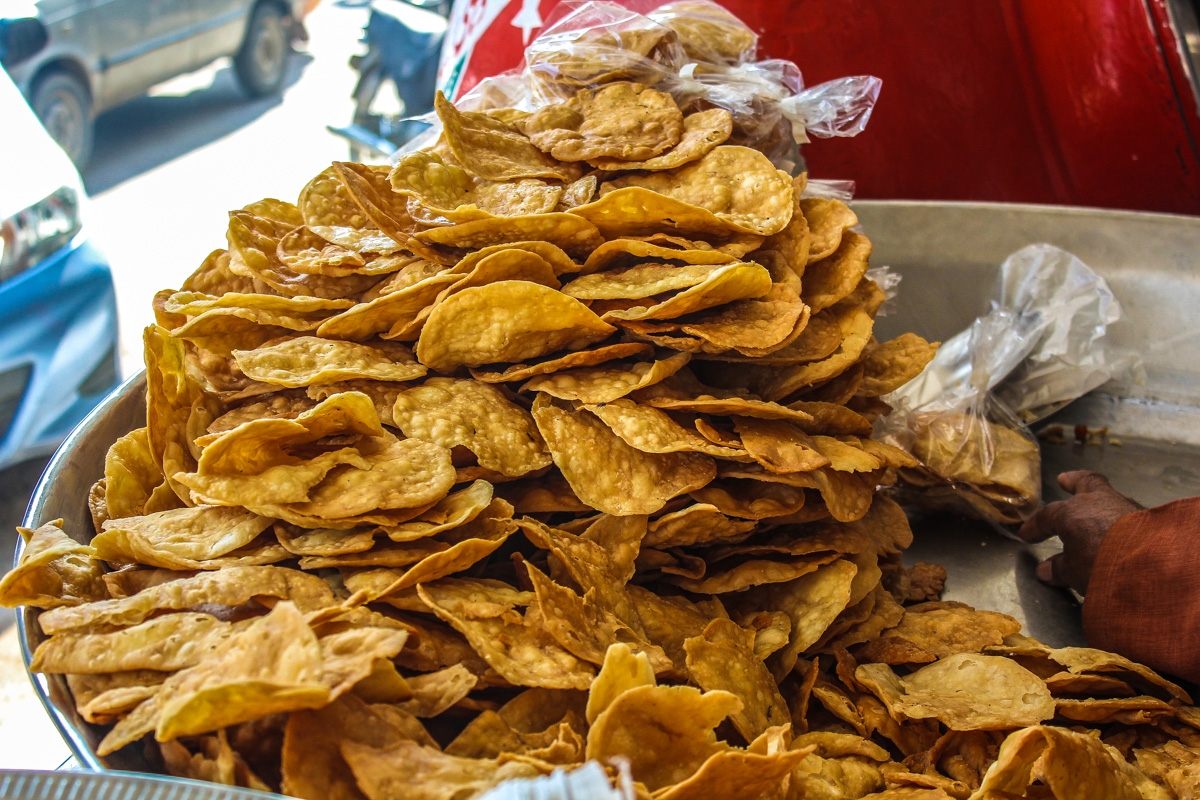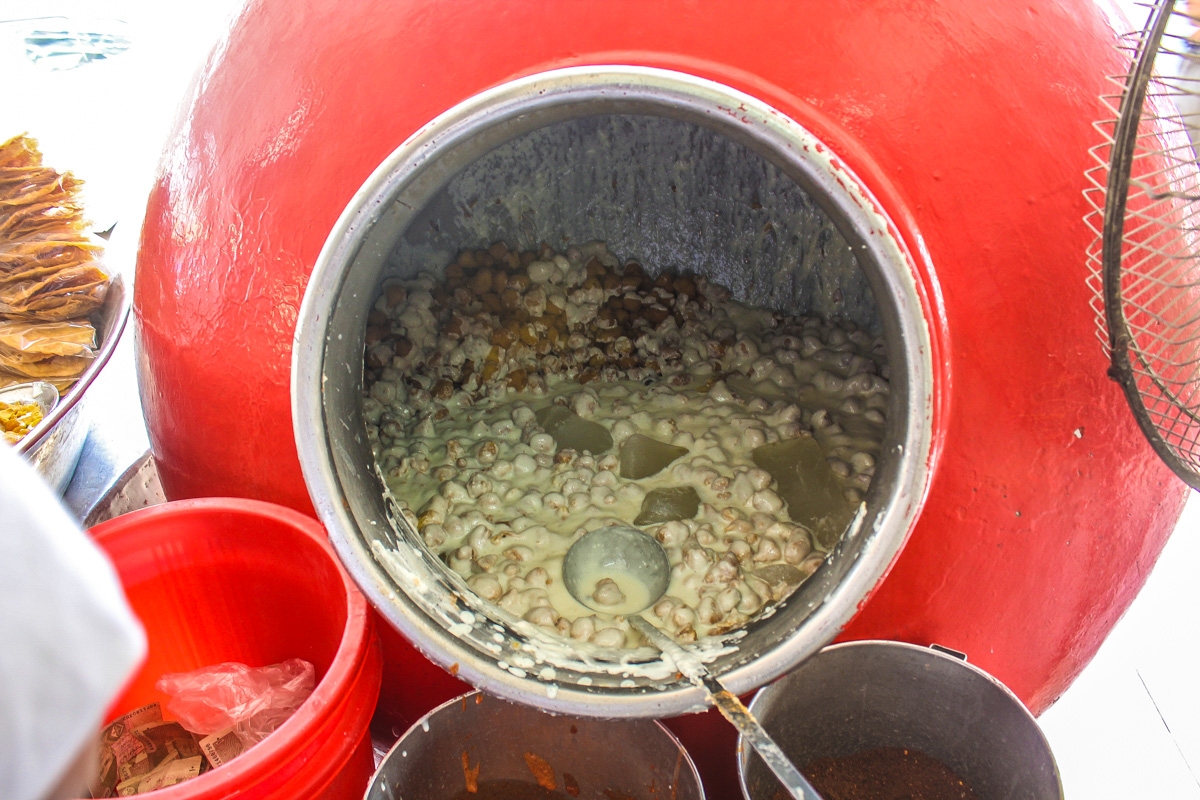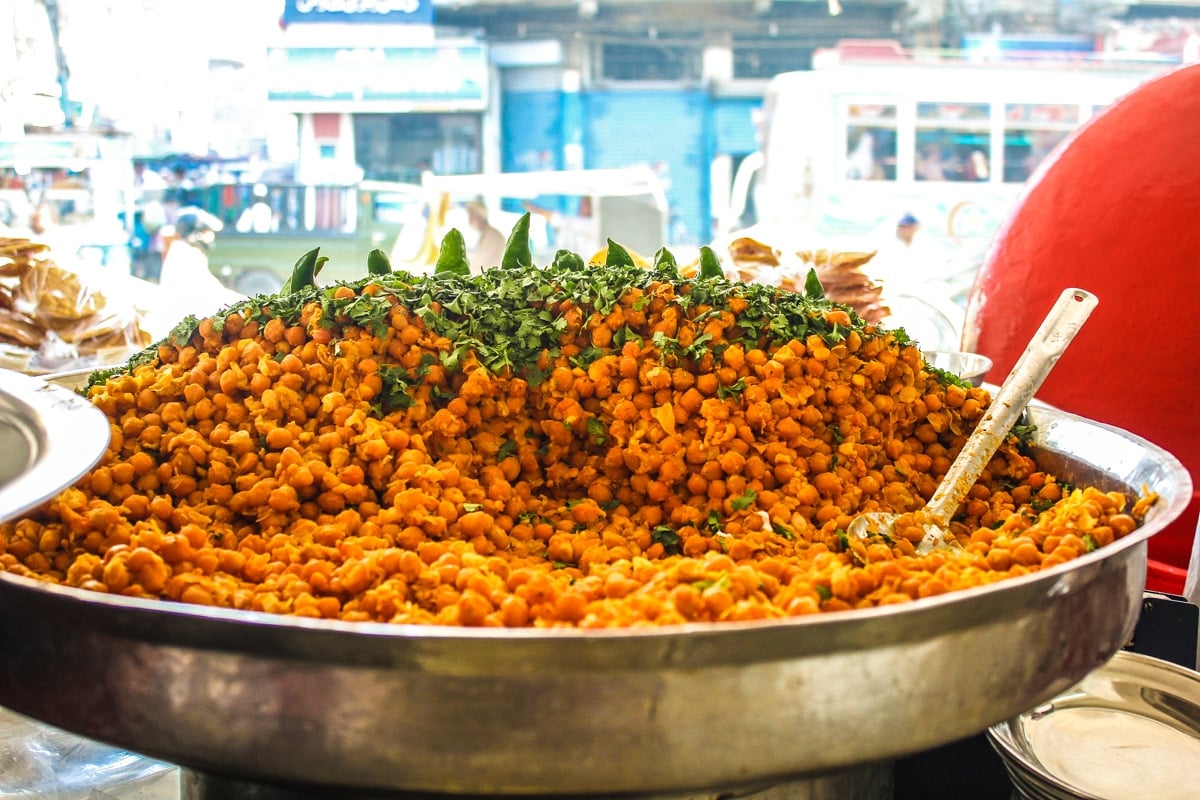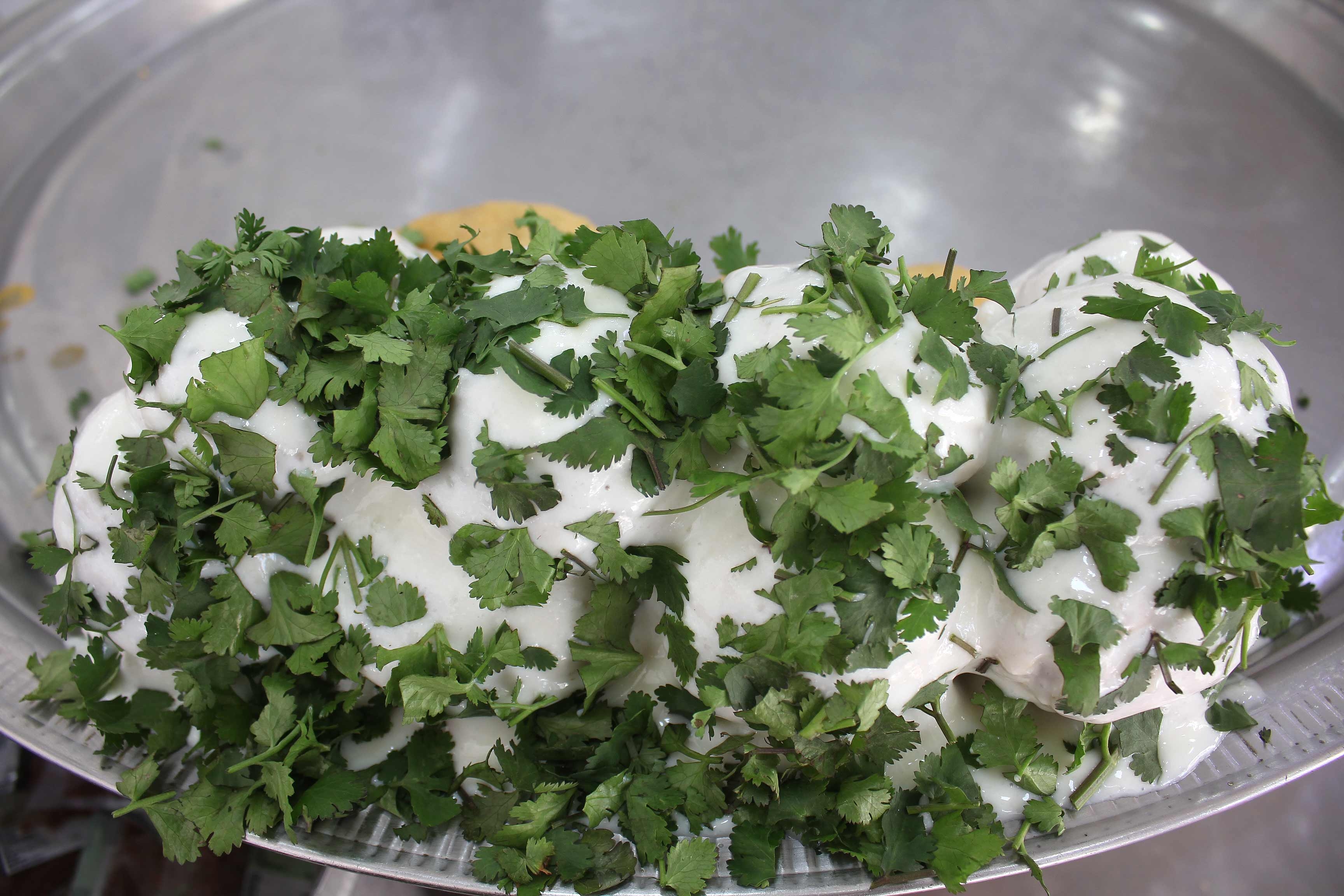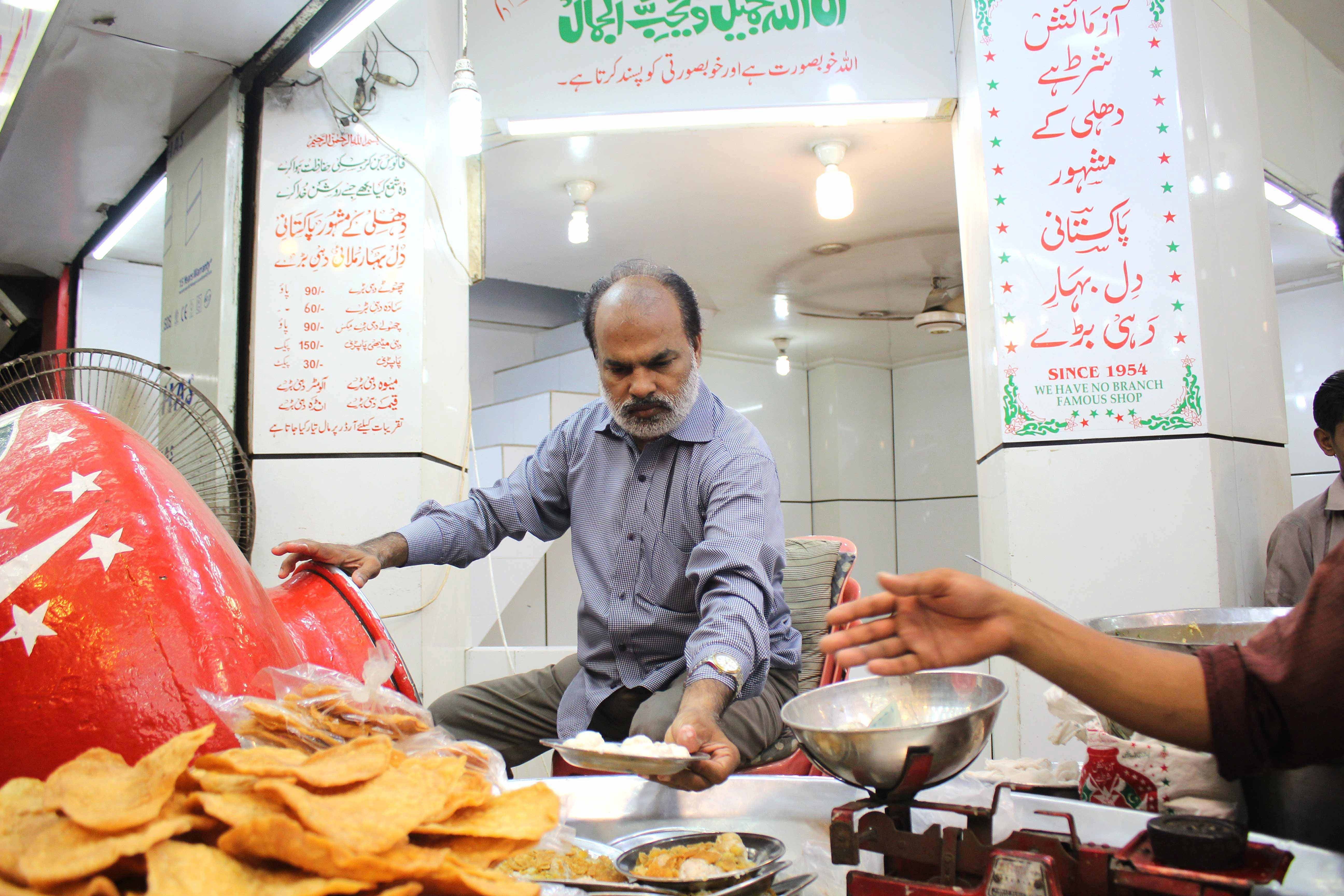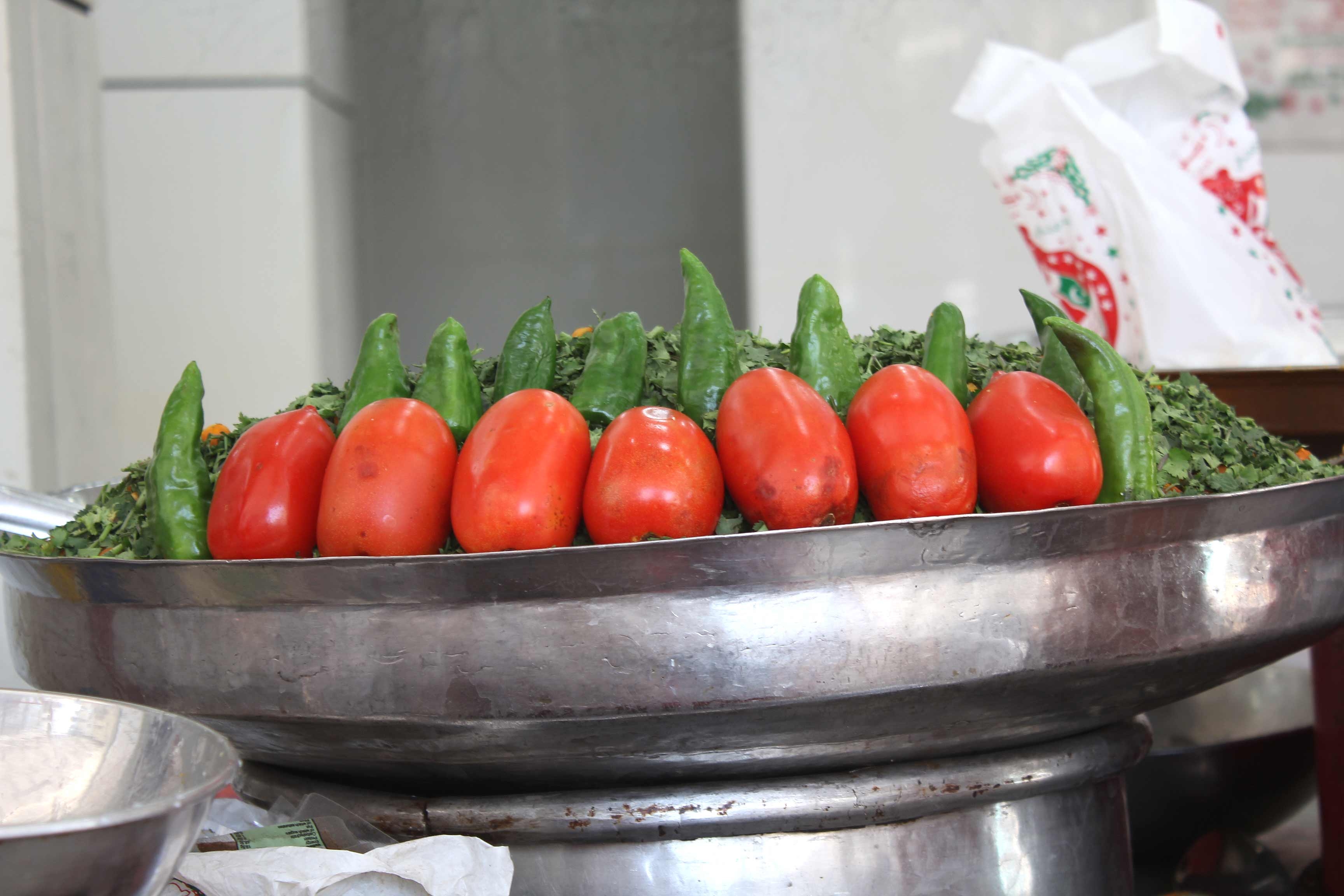

Dahi Baray or Dahi Vaday, lentil dumplings flooded in seasoned yoghurt, is one of the best-selling noshes in various parts of the subcontinent. It is prepared by bathing Baras, fried or non-fried soft fist-sized balls of ground pulses, in viscous Dahi (yoghurt). The savory snack was not born yesterday as a recipe for Dahi Baras (as kshiravata) is mentioned in Manasollasa, an early 12th-century Sanskrit text composed by the South Indian king Someshvara III of the Kalyani Chalukya dynasty. The text describes foods that continue to be part of modern sub-continental tradition. The evolution of flavours has only made them better.

The iconic Matka
The lip-smacking Dahi Baras have a seductive mouth-feel, so to speak. When the meticulous mix of twelve condiments bursts out its aromatic pungency, the oniony, minty, peppery snack leaves your palate in an unmistakable tastegasm. This is how a hardcore foodie once described the experience of relishing a plateful of well-prepared Dahi Baras.
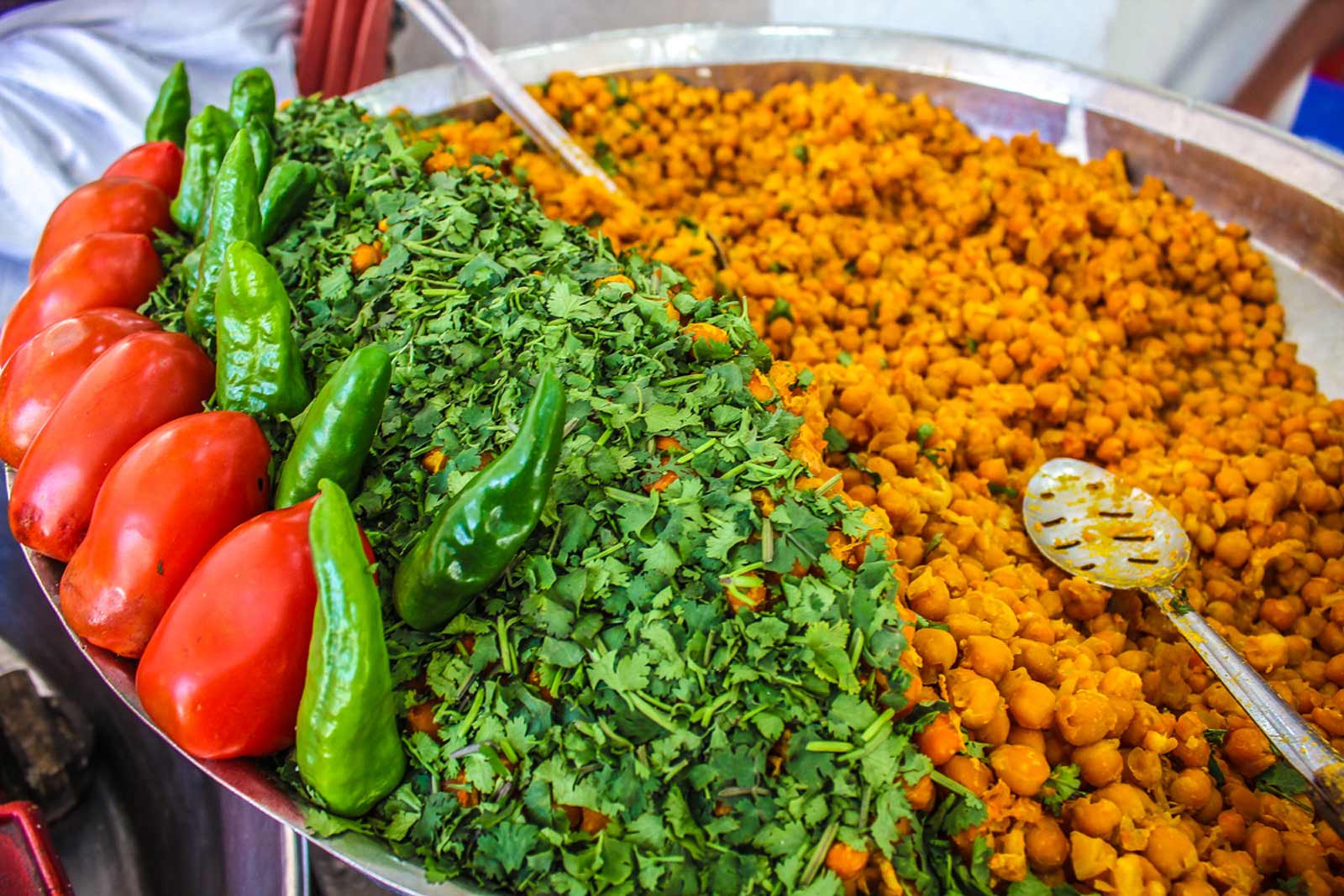
There are hundreds of vendors in Karachi but the bites offered by the legendary “Pakistani Dil Bahar Dahi Baray”, which stands rooted since fifties on the Burns Road, the oldest food street in the city, remain a taste apart. Intrigued, we engaged them for an up-close interview to find out what makes their snacks so highly-sought-after and were wowed by the bitter-sweet success story of their scrumptious startup.
Question: Everyone wants to know when did you start this tasteful venture?
Answer: Our family migrated to Karachi after the partition of British India in 1947 and started work on a small scale. Then, the famed “Ambala Sweets” used to sell their wares around the corner but they later moved on and were replaced by “Karachi Haleem.” The sweetmeat vendor “Fresco” was still mulling selling Dahi Baray then.
Q: Is it correct that all you brothers are united in this business and live close to each other?
A: Yes, we all four brothers are looking after this business. Our residences are also located here at Burns Road.

Mohammad Shamim Saleem, the eldest of bother.
Q: When exactly did you start working at this shop?

A: I believe it was early 1980s, when I started lending a hand in the family business.
Q: How did you make a name among the people?
A: First of all by the grace of Allah Almighty people trust in our taste because we have original, time-tested, homemade and recipes, and we never compromise on the quality of the ingredients whether it’s cream, yoghurt, or any of the Bara Masalay (twelve spices).
Q: Would you like to share with us the recipe of your famed Dahi Baray?
A: We prepare them with (ground) pulses, corn, and yogurt, and different seasonings.
We use 12mm Kabuli Cholay. They are the best of all. We are not like other competitors, who go for ‘Cholay Sanyasi’, which are relatively cheaper, smaller, and inferior compared to Kabuli Chanas. We have never used them.
Q: What was the price of a plate of Dahi Baras when your father started this business?
A: The starting price was Rs1 a plate. Now it’s Rs60 per plate due to the inflation and the rising cost of doing business.
Q: The retail side of your business is ever-growing with a strong base of loyal customers, but we would also like to know how your catering side is doing? Do you receive orders for private functions, parties, and other events?
A: Yes we do, but the number has fallen compared to the yester years. Now-a-days people hire catering services to save time and energy.

Q: Have any celebrities or politicians visited and eaten at your shop?
A: Many politicians have been to our shop. In fact, Burns Road housed the majority of Karachi’s entire population in the early days of Pakistan. Thus many politicians, celebrities, and notable social workers have eaten here during my father’s as well as my time. Back in the day, people were decent, empathetic, and understanding.
Q: Does your business also suffer from the city’s law and order situation? If so, then how do you cope with it?
A: Thanks to Allah Almighty, things have started improving. In simple words, the better the law and order situation, the stronger the business. City’s political situation definitely has an impact on the sales. For those days, we have to prepare our stuff in limited quantity and sell it as fresh as it can be. We have no problem with taking a hit to preserve the goodwill we have established in this competitive market over the span of 50 odd years. Our Dahi Baras are prepared and sold every day. If, for some reason, we are unable to sell them on a particular day, we won’t keep them for tomorrow. That’s exactly why we are complimented for maintaining our proverbial “50 year old taste.”

Q: It’s strange to note that you have never tried to branch out despite your celebrated success. You could have made a fortune by expanding your ancestral business.
A: It's a question we have been asked countless times down the years and the answer, simply, is that we want to keep it limited so that it remains homely and manageable. Put humbly, we don’t want to bite off more than what we can chew. Our dad used to advise us that: “When we work more (for material wealth, comforts, and possessions), we do it for others (for pomposity or to show off), but when kept under reasonable limits, it is solely for the purpose of serving ourselves (for fulfilling our sincere needs).” We lead simple lives and therefore are not inclined towards making more money. We are grateful to Allah Almighty for what we have, and we are happy with it. We all brothers are in same the profession and our next generation is also ready to follow in our footsteps. We don’t have any other branch or plans for the same. We open at 11am, serve our customers to their satisfaction, and close at 11pm and go home to our families.
Q: Why did you name your shop after the Indian city of New Delhi?
A: Our late grandfather used to run the same business under the same name with great success in New Delhi and my father continued that legacy here.
Q: What is that big Matka (pitcher) for? What purpose does it serve here?
A: This pitcher on the display was crafted by my father. In the early times Dahi Baras used to be made in it. Times have changed now, everything is synthetic. Now this is nothing but a showpiece.
Q: What memories do you have of Burns Road from the bygone days?
A: Back in the day, this road was the focal point of the country’s political activities. It was a popular hangout for many political heavyweights. Different party workers would put their political signs and slogans in the form of banners and posters here and there. Fatimah Jinnah, Naun Sitaray (Nine Stars), and other political leaders frequented Burns Road more often than not. In those days, somewhere on this road, there also used to be a radio hotel, the oldest and most famous in terms of politicians’ visits. They had a big radio that played news and songs for the customers. Many of the famous politicians would spend time there taking tea, eating, and talking. One of them even hanged a sword in that restaurant.
Q: Do you belong to Jamiat-e-Punjabi-Saudagaran-e-Delhi (sometimes referred to as the Qaum-e-Punjabian, or simply Shamsi Biradari are a community of Muslims that historically came from Sargodha in Punjab and then lived mainly in Old Delhi, India)?
A: Yes we do. Initially, we inhabited this area. Some of us later moved to Bahdurabad, Allah Wala Town, Baloch Colony and Shamsi Society, etc. Previously, this area was purely populated by Saudagaran, now several other clans have replaced the likes of us.
Q: How many shops were there when you launched your business?
A: Back then, there were only four to five food shops. In the beginning, many of these legendary eateries were merely Takhts (wide wooden benches). With the passage of time they turned into kiosks/stalls/cabins. It took them quite a while before they finally became shops. Even our father rented a Takht from Waheed Qasai to start this business. It was kind of encroachment, which was illegal, but wasn’t a big deal when it came to pack your shop and run back. However, now, it’s not that easy to do so. The government is in action now and things have started to be sorted out.
Q: How do you distribute duties among brothers?
A: Some deal the customers, some work in kitchen and store. Work never stops in our kitchen as we are continuously preparing fresh material at hourly intervals.
Q: When is the peak season in terms of sales?
A: Ramadan, the holy month of fasting, has always been the peak season to date, Alhamdulillah (Praise Be To Allah).
Q: What is your message for the readers and fellow countrymen?
A: United we stand, divided we fall. We have seen 50-60 year old businesses collapse due to disunity. When family systems fall apart, the family businesses follow the suit. There's Barkat (blessedness/satisfaction) in brotherhood. We are thankful to Almighty that we (brothers) are always ready to understand, cooperate, and sacrifice because family comes first and family is everything.









